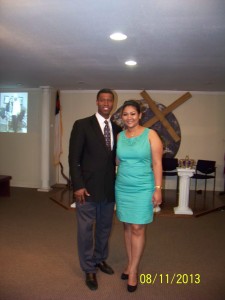
Anger, sometimes defined as “a strong feel of displeasure or being irritated;” is a powerful emotion, so much so that it has been labeled a universal sin and I is said that it is one letter from “danger.”
It happens all the time and to all kinds of people. An absolutely pleasant conversation can be ruined when someone’s displeasure surfaces. A perfectly happy relationship can be damaged under the assault of a displeased person.
And a good day can be spoiled because the boss comes in with “a strong feeling of displeasure.”
Anger is tricky because, unlike fear, the Scriptures say there is an appropriate time to be angry. God said, “Be ye angry, and sin not: let not the sun go down upon your wrath: Neither give place to the devil. Ephesians 4:26-27
Someone can become enraged over the mistreatment of a child or an animal, and if it is within his or her power, he or she can move to put a stop to the situation.
Keep in mind that the kind of anger that is kindled by the abuse of a helpless living being is not destructive.
However, anger that is buried or improperly expressed has lethal power. God calls that kind of anger bitterness and warns: “Follow peace with all men, and holiness, without which no man shall see the Lord: . . .”
“ . . . Looking diligently lest any man fail of the grace of God; lest any root of bitterness springing up trouble you, and thereby many be defiled; Lest there be any fornicator, or profane person, as Esau, who for one morsel of meat sold his birthright. Hebrews 12:14-16
How can you know the difference between a properly control anger and a destructive anger? You can easily check yourself for bitterness in two ways:
1) Listen to yourself. When you speak, do you make sarcastic, cutting, or heated remarks about the person toward whom you have a “strong feeling of displeasure?”
Whenever his or her name is mentioned, do you have something negative to say? As God has been showing me this truth in my own life, I have identified some anger I have to deal with.
Speech is the first-line indicator of a bitterness problem. As I have told you, my daughter Sheila has said to me; and it has been said by many others, “All of the time, it is not what you have to say that hurts but how you say it to the person.”
2) Observe your own actions. You may not overtly attack the person with whom you are angry, but how about the many subtle ways of getting your point across?
The silent treatment, for example; silence speaks volumes and, in case you think other people don’t notice the tension your “displeasure” causes, think again.
Avoidance is another way of showing your displeasure, when you are displeased with a person, you seek to stay out of their company. Please do not forget how you look at a person that you are displeased with.
I have often heard, “Oh, if looks could kill . . .” You may be priding yourself on the restraint you have shown in not attacking openly, but no matter how you may try to hide it, unresolved anger shows.
Give yourself the bitterness test today. If you pass, great! To God be the Glory. If not, you have a choice to make. God says you can pull up those bitter roots. Get rid of them and move on. Ask God to help you make the right choice.
Good things to consider:
1) We get our moral bearings by looking at God, and only Him. We must begin with God. We are right when, and only when, we stand in a right position relative to God, and we are wrong so far and so long as we stand in any other position–A. W. Tozer.
2) How far you go in life depends on your being tender with the young, compassionate with the aged, sympathetic with the striving, and tolerant of the weak and strong. Because someday you will have been all of these–George Washington Carver.




